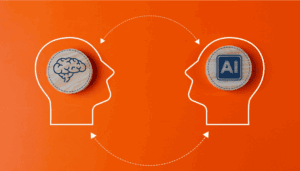
Over the past several months, we’ve explored some of the most common criticisms of conversational AI in hospitality. We’ve examined the empathy gap, where AI struggles to respond with genuine emotional intelligence. We’ve looked at personalization and why even the most advanced systems often fall short of treating guests like individuals. We’ve considered the risks of anthropomorphizing AI—when systems seem too human, creating unrealistic guest expectations. And we’ve addressed the fear of job displacement, showing that AI like Annette, The Virtual Hotel Agent™ (Annette) doesn’t replace staff but she complements them.
In this final article of the series, we turn to perhaps the most complex issue of all: bias and inaccuracy.
Why Bias Matters in Hospitality
Bias in AI isn’t always intentional, but it’s always impactful. Algorithms are built and trained by humans, which means they can absorb the same blind spots, cultural assumptions, or skewed data as their creators.
Advertisements

In hospitality, this can manifest itself in subtle yet significant ways. A guest’s request might be misinterpreted because of an accent. A product recommendation could reflect the preferences of a narrow dataset, not the needs of a diverse traveler. Or a system might miss context that an experienced concierge would recognize immediately.
For hotels, these moments matter. Guests expect fairness, accuracy, and cultural awareness. A system that repeatedly misses the mark risks not just disappointing a guest but eroding trust in the brand.
How Bias Compounds Existing Challenges
The concerns we’ve already covered in this series intersect directly with the risks of bias.
- Empathy: As we noted in our article on AI’s empathy gap, 73% of consumers say customer experience is a critical factor in purchasing decisions. If an AI response feels not only robotic but also biased or dismissive, the damage is compounded.
- Personalization: Bias undermines personalization. If the data used to tailor guest interactions reflect outdated or narrow assumptions, the experience may feel less personal, not more.
- Anthropomorphizing: When AI systems sound “human,” guests may assume their judgment is fair or impartial. In reality, those outputs could reflect unseen biases baked into the training data.
- Job Displacement: As we argued in our piece on AI and employment, Annette doesn’t replace humans, and humans are needed precisely because they can recognize and correct inaccuracies.
In short, bias is rarely an isolated issue. It amplifies every other weakness in the system.
Annette’s Approach: Purpose-Built and Professionally Managed
This is where Annette sets herself apart. Unlike generic chatbots designed for broad industries, Annette was built specifically for hospitality. She doesn’t try to be everything for everyone. Instead, she’s pre-trained with hotel-specific vocabulary, policies, and guest-service scenarios. That specialization reduces the risk of irrelevant or inaccurate answers.
Equally important, Annette’s powerful guest-led conversational hotel AI was designed with boundaries. She doesn’t “fake it” when a guest’s request goes beyond her scope. If a conversation requires nuance, empathy, or cultural judgment, she seamlessly escalates to a live hotel staff member. As we’ve emphasized throughout this series, that handoff is not a failure of AI — it’s a feature.
Behind the scenes, Annette is supported by Travel Outlook’s premier hotel call center. Unlike plug-and-play systems that rely solely on static training sets, Annette evolves through continual oversight and updates. Human experts ensure that her performance reflects the standards of hospitality, not just the logic of an algorithm.
Transparency as a Safeguard
Another way to manage bias is through transparency. In When AI Seems Human, we stressed that guests should always know when they’re interacting with an AI system. That principle applies here as well. If guests understand they’re speaking with Annette, they’re more likely to appreciate her speed and availability while giving her the benefit of the doubt if she escalates their request. Transparency prevents bias from being mistaken for intentional judgment.
Why Bias Isn’t a Dealbreaker
It’s important to acknowledge that no AI system will ever be perfect. Bias and inaccuracy are risks in any algorithm, especially those that interact with human language. But in hospitality, the question isn’t whether AI can operate without flaws. The question is whether it can operate in a way that enhances the guest experience despite those flaws.
Annette does precisely that. By focusing on hotel-specific training, integrating human oversight, and prioritizing escalation when needed, she minimizes the risks of bias while maximizing the benefits of automation. She answers routine questions, handles call volume, and provides multilingual support — all while leaving the most sensitive or subjective cases to human staff.
The Bigger Picture
Hospitality is entering a new era where every guest interaction counts. Travelers are paying more for experiences and expect service that’s both efficient and authentic. Online travel agencies continue to struggle with unresponsiveness, putting direct guest engagement back in the spotlight. Voice, in particular, has reemerged as a critical channel for booking and guest support.
In this environment, hoteliers can’t afford to ignore the efficiencies of AI — but they also can’t afford to deploy systems that frustrate guests or perpetuate bias. The winning strategy is the same one we’ve highlighted throughout this series: pairing cutting-edge AI with the irreplaceable judgment, empathy, and cultural awareness of human staff.
Bias and inaccuracy are real concerns in conversational AI, but they aren’t dealbreakers. For hotels, the key is choosing AI solutions designed for their industry and pairing them with expert human support.
Annette embodies this balance. She was built for hospitality, trained to minimize inaccuracies, and supported by Travel Outlook’s industry-leading talent. For hotels, that means embracing AI not as a substitute for service, but as a partner in delivering it.
